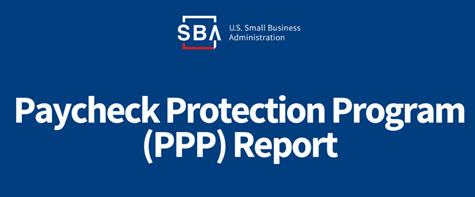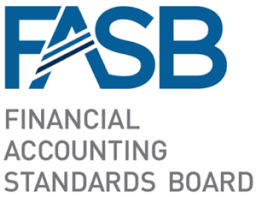
Six real estate industry organizations, including The Real Estate Roundtable, wrote to federal regulators on April 14 to communicate the urgent and growing need to include a wider range of investment grade commercial real estate debt instruments in the Fed’s Term Asset-Backed Securities Loan Facility (TALF) credit facility. Currently, TALF eligible collateral is limited to triple-A rated tranches of outstanding (legacy) commercial mortgage backed securities (CMBS), commercial mortgage loans and newly issued collateralized loan obligations. (TALF letter, April 14)
- The TALF, previously used during the 2008 financial crisis, was relaunched on March 23 in response to the Covid-19 crisis to “enable the issuance of asset-backed securities (ABS) backed by student loans, auto loans, credit card loans, loans guaranteed by the Small Business Administration (SBA), and certain other assets.” (Fed news release, March 23)
- Immediately after the TALF was relaunched, an industry coalition on March 24 urged the Federal Reserve, Treasury, and Federal Housing Finance Agency to expand the TALF to include non-agency CMBS – including legacy private-label conduit and single-asset single borrower (SASB) assets. The coalition, which includes The Roundtable, stated the inclusion of private-label assets would stabilize asset prices and shore up the balance sheets of market participants. (Joint Industry letter, March 24)
- On April 9, the Federal Reserve announced that it would broaden the range of TALF eligible collateral to include triple-A rated tranches of both outstanding (legacy) CMBS, commercial mortgage loans and newly issued collateralized loan obligations. However, the updated term sheet excludes single-asset single borrower (SASB) CMBS and commercial real estate collateralized loan obligations (CRE CLOs).
- According to the April 14 letter, “Commercial and multifamily real estate assets that were perfectly healthy just weeks ago now face massive stress and a wave of payment and covenant defaults. As the economy shuts down and American workers face massive layoffs, it is now clear that many tenants will not be able to meet their debt obligations. This will soon cascade through the over $4 trillion commercial real estate debt market and exponentially increase the pressure on the financial system.”
To bolster the health of the CMBS market, the industry coalition recommends the following investment grade instruments be added as eligible TALF assets:
- Legacy and new issuance, investment grade, non-agency CMBS;
- Investment grade Agency Credit Risk Transfer (CRT) securities;
- Legacy and new issuance Single-Asset, Single-Borrower (SASB) CMBS;
- Commercial real estate (CRE) collateralized loan obligations (CLOs); and
- U.S. commercial real estate (CRE) first mortgage loans (which have capital charges equivalent to investment grade/NAIC CM 1 and 2 and loans in good standing, or can obtain a rating agency letter confirming that the pledged loan is rated at least single-A).
The coalition letter explains that a broader, deeper, and more effective TALF would complement and minimize the direct lending that will be required of the Federal Reserve’s other credit facilities, which are supported by the $454 billion provided under the CARES Act.
The coalition also notes that expansion of the TALF’s scope and the Fed’s further support of the highly illiquid non-bank financial sector would forestall further disruption and economic dislocations in the commercial real estate sector.
Pandemic Risk Insurance Coverage
Two preliminary legislative proposals in Congress seek to address increasing requests for the property and casualty industry to extend business interruption (BI) insurance policies to cover pandemic risk related claims – and the general lack of pandemic risk commercial insurance availability.
- A recent effort in the House led by Rep. Carolyn Maloney (D-NY) seeks to develop the Pandemic Risk Insurance Act of 2020 (PRIA), which would create the Pandemic Risk Reinsurance Program. PRIA would seek to create “a system of shared public and private compensation for business interruption losses resulting from future pandemics or public health emergencies.” (Rep. Maloney Dear Colleague letter, April 10 Roundtable Weekly)
- Rep. Maloney’s pandemic program would be prospective – not retrospective. “Like the Terrorism Risk Insurance Act (TRIA), the federal government would serve as a backstop to maintain marketplace stability and to share the burden alongside private industry,” according to Maloney.
- In the Senate, Sen. Steve Daines (R-MT) is working on a broader concept that is both retrospective and prospective. Known as the Workplace Recovery Act, the measure would provide direct retrospective reimbursement through a Federal Automated Security Trust program to every business for operating losses, limited to 90% of past revenues.
- The Senate proposal would also establish a new government-funded business interruption insurance add-on for every privately administered commercial insurance plan to protect against future national pandemics.
- The National Association of Insurance Commissioners issued a statement recently warning that such efforts “would create substantial solvency risks for the sector, significantly undermine the ability of insurers to pay other types of claims, and potentially exacerbate the negative financial and economic impacts the country is currently experiencing.” (NAIC statement, March 25)
As with terrorism risk insurance, The Roundtable is working with policymakers and stakeholders to help develop an effective risk insurance program that addresses the economic impact of the current pandemic crisis and provides the economy with the coverage it needs to deal with future pandemic risks.
# # #








